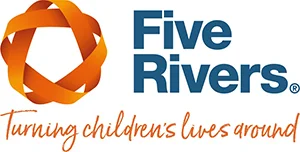Is there a Health Blindness’ to the impact of Adverse Childhood Experiences?
Friday 14 September 2018
Last updated: Monday 18 November 2024
The use of integrated case management to avert later crises
The negative effects of childhood trauma are known to clinical psychologist and care professionals alike as Adverse Childhood Experiences (ACEs). ACEs can manifest themselves as confusing, out-of-the-ordinary and potentially challenging behaviours, behaviours which a young person or child may engage in often as a self-defensive and soothing mechanism. Unfortunately, these mechanisms are often maladaptive and can result in difficulties forming relationships and difficulties achieving potential, both in education and society.
Many care systems make providing education and care a priority, however, fair to tackle these underlying difficulties. This persistently leads to a destructive cycle of breakdown in education, fostering and residential settings. It is a pervasive problem which I call ‘Health Blindness’.
The good news is that there are many effective therapies and interventions available to child care professionals to help children overcome ACEs before they create further damaging ripples through their young lives. One of the best forms of intervention for a young person or child is to have the support, nurture and care of a stable, consistent caregiver.
For those of us whose job it is to heal the hurt, it is valuable to understand the instances of abuse and neglect that the children endured before they were taken into the protection of their local authority. This knowledge can help us advocate for looked after children to get the focused support and therapies they need to mitigate negative impacts and make their placement successful.
Sadly, our access to the necessary information prior to accepting a child into our care is often limited. To overcome this challenge, all children referred into the care of fostering, residential or alternative education services should be supported by an integrated case management system which allows everyone in the caregiver team – the foster carer, the residential support worker, fostering support worker or the teacher – to contribute to the collation of useful data around the child.
The system should be overseen and managed by clinical professionals who periodically assess each child’s progress towards emotional health. Where needs are identified, packages of care can be sought and funded. This will result in far better outcomes for the child or young person, helping to prevent further damage.
Adequate support may also allow for the discontinuation of destructive behaviour patterns which may otherwise continue as the child enters the adult domain.
If such an early intervention raises a more emotionally-secure, productive individual ready to participate in their community and achieve their dreams, it will more than pay for itself in the long run.
When we see the astonishing impact of therapeutic care and support, we feel gratified and motivated to work even harder to help more children turn their lives around – it is a virtuous circle. That is why Five Rivers has invested in our Integrated Case Management system, which not only supports the children in our care, but generates the vital data that proves the benefits of their treatment, making the case ever more compelling for mental health support for children and young people who have suffered through no fault of their own.
About the Author
Richard Cross is a UKCP-registered psychotherapist & child psychotherapist with over 26 years experience of working with children & young people & adults who have experienced traumatic events. He leads Five Rivers Child Care Clinical Services team of 5 HCPC-registered clinical & counselling psychologists and UKCP-registered psychotherapists.
They directly work with children in foster care, residential care and alternative education across England. The research and development function analyses over 1500 separate assessments each year (SDQ, RPQ, CDC) and the data is used to support integrated case management meetings.
